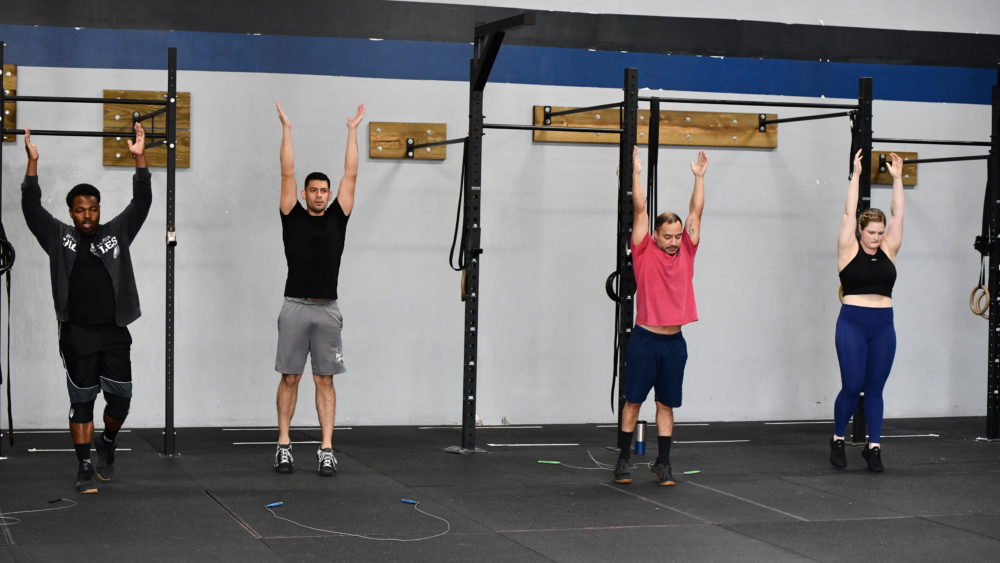
The real reason we’re all in the gym: Results. We want something out of our fitness and/or our body composition. We want to be able to do something better or look better. Plain and simple. The problem with results is that we expect it to be this linear thing, and unless you’re a professional athlete who can spend 8 hours in the gym and also get 8 hours of quality, undisturbed sleep at night, that’s not going to be the case. So, what if we don’t have that kind of time to spend in the gym and recovering? What optimizes results?
The moment we aren’t making progress the way we want to, our immediate thought is, “I need to be doing more.” Why do we think this way as human beings? If some is good, more is better? I have no idea, but it’s just our go to and in the fitness realm it’s actually a pretty simple equation in our heads. No one was ever told, “Oh you’re trying to lose weight? You should be doing less. Oh you’re trying to get stronger? You should be spending less time lifting weight.” Clearly doing less exercise is not going to get you to your goal, but we don’t have to always immediately jump to more workouts. There should be a checklist of things we are doing first in order to ensure that more workouts is REALLY where our focus should be.
The first thing is sleep. This is the easy, low-hanging fruit. It’s no secret that the more you sleep, the more recovered you’re going to feel and the harder you’re going to be able to push in workouts. If you constantly feel like you’re just going through the motions when you workout, you need more sleep. You need to find a way to rest more at night so that when you are in the middle of a workout, you can push to the best of your potential. Let’s put it this way: if we go out to a track and I tell you that you need to cover the distance of 1 mile on the track and I don’t care how you do it, you just have to complete a mile. Well, sure you can take a leisure walk and finish it in 20 minutes or so but what about the person who decides to run it as fast as they can? I bet they’re going to walk away from the track with more endurance, stamina, agility, and speed, than the person who chose to walk. So, more sleep to push harder in workouts. That’s number ONE.
The second thing on the checklist is the diet (this does not mean fad, crash, or the like – it literally translates into: “eating lifestyle”). This is another easy one. If you’re trying to lose weight, you need to be at the right amount of caloric consumption EVERY DAY. Not 4 days out of the week. Not 5 days out of the week. EVERY DAY. Weight loss is a matter of consistency. Your body needs to constantly receive the signal that there is not enough calories coming in to sustain proper glucose levels. IF you have 4 good days in a row and then go have pizza and a whole bunch of drinks on Friday night, that signal resets and you start the process all over again. The same goes for if you’re trying to gain weight and get stronger. You need to eat the right amount of calories EVERY DAY.
The last thing on the checklist and this one may not be as obvious is just better movement. Yea, believe it or not. Moving better will lead to faster workout times which will drive intensity. Here’s another scenario: say I tell two guys to walk to the corner store to get something. Person A walks there, but while doing so he’s having a seizure. Person B walks there and he’s just casually walking. Sure, they both get there but obviously person A is pumping out WAY more energy to get there. He’s having to work REALLY hard. Person B will get to the store and be fine and probably ready to do some other physical activity later in the day. Person A will probably spend the rest of the day in the hospital and probably not even make it to the store. The best athletes aren’t posting the fastest times in workouts because they’re super humans; they post the best times because when they do 21 thrusters at 95 pounds, they’re heart rate only jumps to a 150, but when you or I do 21 thrusters at that weight, our heart rates jump to 170-180. They complete the same tasks we do at a sub-maximal level. And they do this, mostly by just moving better.Which in turn, allows them to perform more workouts again later because they don’t feel like they completely exerted themselves.
So, if you’re NOT sleeping enough, eating right, or moving as well as possible then you do NOT need to do more workouts. You need to fix those 3 things. This will, in turn, drive results. If you get to the point where you are doing all these 3 things AND you’re still not making progress, then and ONLY then should you consider possibly adding more workouts to your load.
To learn more about how to make the most of these three things and have an optimal level of health, schedule a time for a consult with us!
